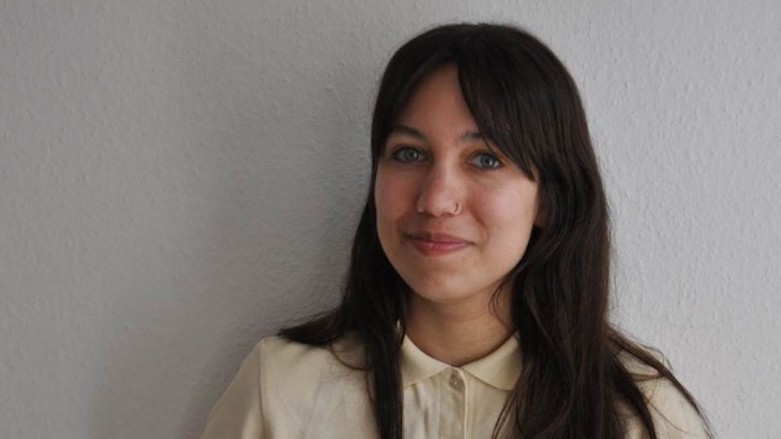Yezidi journalist wins literary award in Germany

ERBIL (Kurdistan 24) - German-Kurdish-Yezidi author Ronya Othman won the Mara Cassens Prize for her debut novel “The Summers.”
The prize goes to writers of debut novels, with the winners picked by a team of volunteer readers. The 15-member selection committee made a pre-selection of eleven favorites from 58 debut novels submitted.
The jury decided to award Othman for her novel “Die Sommer” (the Summers), whose main character Leyla, who lives in Munich, Germany, visits her village in northern Syria (Rojava) in the summer.
Leyla, “the daughter of a German from the Black Forest and a Yezidi Kurd, attends high school. Her environment finds it difficult to classify Leyla – she is a [Yezidi], not a Muslim. She is Kurdish, not Syrian. Everything about her is irritating,” the DAI Heidelberg Cultural Centre says about Othman’s book.
“With Leyla’s own memories of childhood vacations and village school without tables and chairs, her father’s memories of mines and police violence mix.”
“On the Internet she sees the destroyed Aleppo, the murder of the [Yezidi] by the IS (Islamic State) and right next to it the carefree photos of her German friends, who don’t ask a question about the war or their relatives,” the summary adds.
“Thus an alienation happens in Leyla, while at the same time she approaches her family and those who are at war – and the reader, the reader with her.”
The jury noted “the most impressive thing” about the novel as being learning a lot “about music, about the angel in form of a peacock (also known as Melek Taus in Kurdish), the preparation of food, as well as about the war in Syria, the danger, and the flight.”
The body also said the novel tells the story of relatives who come to Germany, and, as a result, you learn from people oppressed minorities and those who flee in hopes of finding a life of security.
“We dive into the inner worlds of people who we commonly refer to as refugees,” the jury said.
“The search for the own identity of a young woman who grows up with two cultures and neither feels completely belonging is shown convincingly. As readers, we feel the turmoil between these worlds. Ronya Othmann enriches German literature with her debut novel “Die Sommer”; a voice that we would like to read more about in the future.”
The Mara Cassens Prize was initially planned for January 7, 2021, in the Literature house Hamburg. But this year, the award ceremony was postponed to May 2021. Othman will receive a cash prize of 20,000 Euros, one of the highest financial awards for literature in Germany.
It’s not the first time Othman has won a prize. Last year she also won the public audience award at the prestigious Festival of German-Language Literature in Klagenfurt, Austria, and received 7,000 Euros. She also received 5,000 Euros from the Klagenfurter City Scholarship.
Read More: Kurdish Yezidi journalist wins award at German language literature festival
The 26-year-old was born in Munich and is a German-Kurdish-Yezidi journalist, writer, and poet. She studied creative writing at Deutsches Literaturinstitut Leipzig and currently lives in Leipzig.
She has written for German newspapers such as Der Spiegel, Zeit Online, and Taz. This year, Othman was part of the jury at the Duhok International Film Festival in the Kurdistan Region.
Last year Othman spoke to Kurdistan 24 about her trip to Kurdistan and what motivated her to write her novels, mainly being her Yezidi identity, and the genocide committed by the so-called Islamic State against Yezidis in August 2014.
“I visited my family in Kurdistan—my Ezidi (Yezidi) family. I stayed with them. After that, I came back [to Germany], and wrote a text about what I saw and what people were talking about [regarding] the Ezidi (Yezidi) genocide in the media. That’s the text; it’s about the genocide in 2014.”
Editing by Khrush Najari
